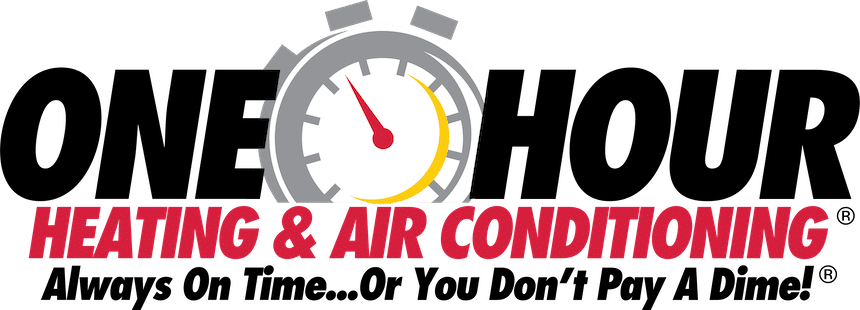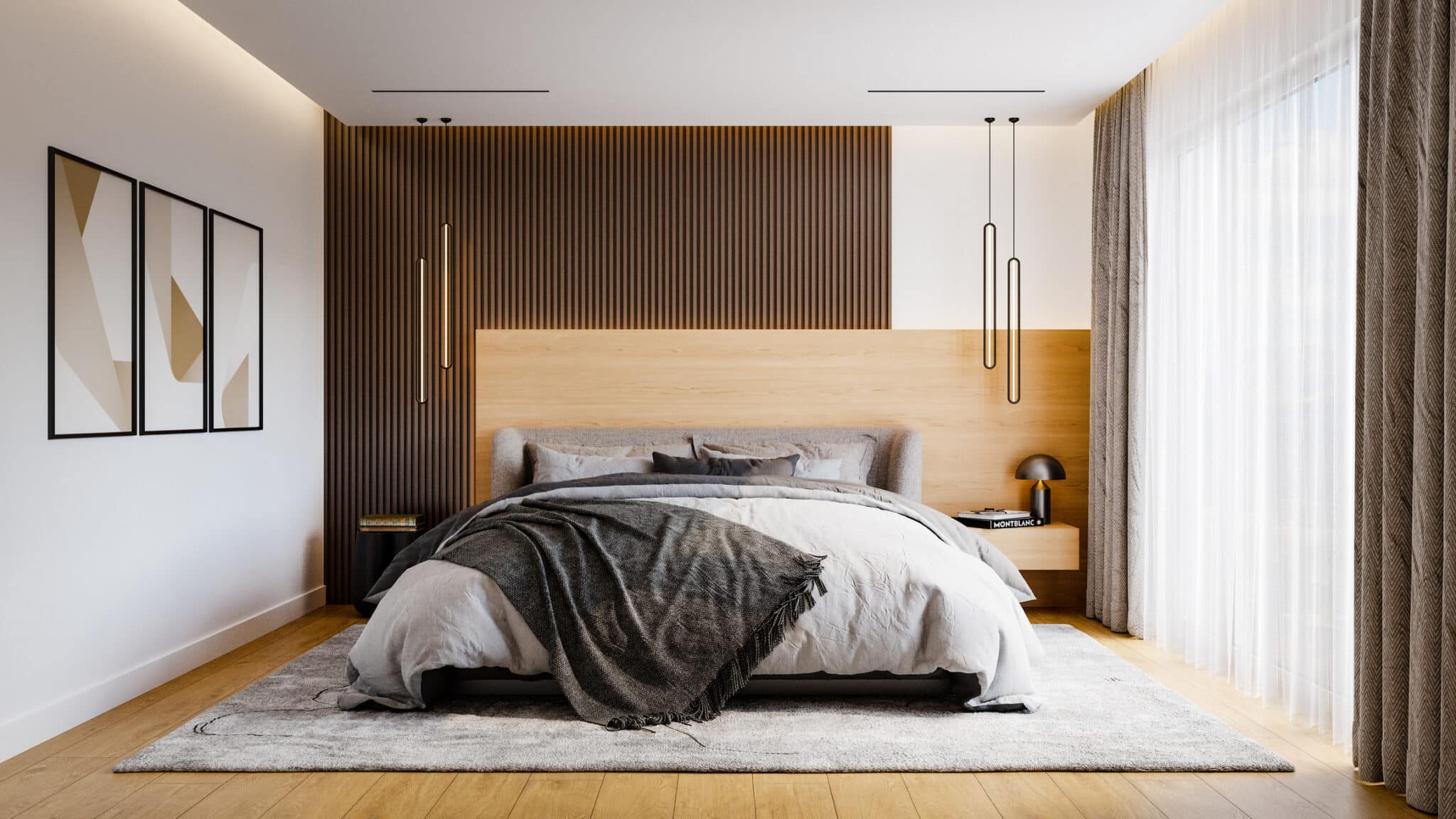Zoned HVAC systems might be the perfect solution. A zoned HVAC system is an advanced method of heating and cooling that allows you to control the temperature in different areas, or zones, of your home independently. This system ensures efficient heating and cooling, providing comfort while saving energy.
Efficient heating and cooling are crucial for maintaining a comfortable living environment and reducing energy costs. Traditional HVAC systems often struggle to provide consistent temperatures throughout a home, leading to hot and cold spots that can be uncomfortable and inefficient.
In the following sections, we’ll delve into how these systems work, the benefits they offer, and why they are an excellent choice for homeowners looking to enhance comfort, save money, and reduce their environmental footprint.
How Zoned HVAC Systems Work
Explanation of Zoning Technology
Zoned HVAC systems use advanced technology to divide your home into different areas or zones, each with its own thermostat. This setup allows for precise control over the temperature in each zone, ensuring optimal comfort and efficiency. The system operates by regulating airflow through dampers located in the ductwork, which open or close based on the desired temperature settings.
Components Involved
Dampers
Dampers are critical components in a zoned HVAC system. These mechanical devices are installed within the ductwork and control the airflow to different zones. By opening and closing, dampers direct heated or cooled air to the areas that need it most, reducing energy waste.
Thermostats
Each zone in a zoned HVAC system has its own thermostat, allowing for individual temperature settings. These thermostats communicate with the control panel and dampers to adjust the airflow and maintain the desired temperature in each zone.
Control Panels
The control panel acts as the brain of the zoned HVAC system. It receives information from the thermostats and manages the dampers to ensure that each zone reaches the set temperature. Advanced control panels can also be integrated with smart home systems for enhanced convenience and control.
Benefits of Zoned HVAC Systems
Enhanced Energy Efficiency
- How Zoning Reduces Energy Waste
Zoned HVAC systems significantly reduce energy waste by only heating or cooling the areas of your home that need it. Traditional systems often heat or cool the entire home, leading to unnecessary energy consumption in unused spaces. By targeting specific zones, zoned systems ensure that energy is used more efficiently.
- Examples of Energy Savings
Homeowners who switch to zoned HVAC systems often see noticeable reductions in their energy bills. For example, imagine a family spending most of their time in the living room and bedrooms during the evening. With a zoned system, they can set the HVAC to maintain comfort in these areas while reducing energy usage in unoccupied zones like the kitchen or dining room.
Improved Comfort and Temperature Control
- Benefits of Individualized Temperature Zones
One of the most appealing benefits of a zoned HVAC system is the ability to create individualized temperature zones. This means that each family member can set their preferred temperature in their bedroom, enhancing personal comfort. No more arguments over the thermostat setting!
- Customizable Comfort for Different Areas of the Home
Different areas of a home often have different heating and cooling needs. For instance, the kitchen might get warmer than other rooms due to cooking activities, while the basement might stay cooler. Zoned HVAC systems allow you to tailor the temperature settings for each area, ensuring optimal comfort throughout your home.
Cost Savings on Utility Bills
- Financial Benefits of Reduced Energy Consumption
Zoned HVAC systems provide substantial financial benefits by reducing energy consumption. Traditional HVAC systems waste energy by heating or cooling the entire house uniformly, regardless of whether all rooms are in use. Zoned systems, however, ensure that energy is used only where it’s needed. This targeted approach to heating and cooling results in lower utility bills, translating to significant savings over time.
- Long-Term Savings Analysis
The initial investment in a zoned HVAC system can be offset by long-term savings on energy bills. Homeowners typically see a reduction of 20-30% in their heating and cooling costs. Over the lifespan of the HVAC system, these savings can add up to thousands of dollars. Additionally, the reduced strain on the HVAC system can lead to lower maintenance and repair costs, further enhancing the overall cost savings.
Extended HVAC System Lifespan
- Reduced Strain on the HVAC System
Zoned HVAC systems help to extend the lifespan of your HVAC equipment by reducing the strain on the system. By only heating or cooling specific zones, the system doesn’t have to work as hard to maintain a consistent temperature throughout the entire house. This reduced workload leads to less wear and tear on the components, resulting in a longer operational life.
- Lower Maintenance and Replacement Costs
With less strain on the system, the frequency of maintenance and repairs decreases. Homeowners can expect fewer breakdowns and a longer interval between necessary servicing. Additionally, because the system components are under less stress, the likelihood of needing major replacements diminishes. This not only saves money but also reduces the inconvenience associated with HVAC repairs.
Increased Home Value
- Adding Value Through Modern HVAC Solutions
Modern HVAC solutions like zoned systems can significantly enhance your home’s value. Prospective buyers often look for homes with advanced, energy-efficient features that promise comfort and cost savings. A zoned HVAC system is an attractive selling point, demonstrating that the home is equipped with up-to-date technology designed for efficiency and comfort.
- Appeal to Potential Buyers
Homes with zoned HVAC systems are more appealing to potential buyers for several reasons. First, the promise of lower energy bills is a major draw. Second, the ability to customize temperature settings for different areas of the home adds a level of convenience and comfort that traditional systems can’t match. These benefits can make your home stand out in a competitive real estate market, potentially leading to a quicker sale and a higher selling price.
Enhanced Indoor Air Quality
- Zoning’s Effect on Air Distribution
Zoned HVAC systems improve indoor air quality by providing better control over air distribution. Traditional systems can circulate dust, allergens, and other pollutants throughout the entire home. In contrast, zoned systems can limit airflow to specific areas, reducing the spread of contaminants. This is particularly beneficial for individuals with allergies or respiratory issues, as it creates a cleaner and healthier living environment.
- Reduction of Allergens and Pollutants
By controlling the airflow and limiting it to specific zones, zoned HVAC systems can reduce the concentration of allergens and pollutants in your home. For instance, if one area of your home tends to accumulate more dust or pet dander, you can isolate this zone and prevent these contaminants from spreading. This targeted approach helps maintain higher air quality standards and provides a more comfortable living space.
Convenience and Ease of Use
- User-Friendly Technology and Controls
Modern zoned HVAC systems are designed with user convenience in mind. They come with intuitive controls that make it easy to adjust the temperature in different zones of your home. Many systems also offer programmable thermostats, allowing you to set schedules for heating and cooling based on your daily routine. This level of control ensures that your home is always at the perfect temperature without requiring constant manual adjustments.
- Integration with Smart Home Systems
One of the standout features of contemporary zoned HVAC systems is their compatibility with smart home technology. These systems can be integrated with smart home platforms like Google Home, Amazon Alexa, or Apple HomeKit, providing seamless control via voice commands or smartphone apps.
This integration not only enhances convenience but also allows for advanced energy management, such as adjusting settings remotely or receiving notifications about system performance.
HVAC Installation and Maintenance
Overview of Installation Process
Installing a zoned HVAC system typically involves several steps. First, an HVAC professional will assess your home to determine the best way to divide it into zones. This assessment includes examining your ductwork and identifying areas where dampers should be installed.
Next, the dampers and thermostats are placed in strategic locations. Finally, the control panel is set up to manage the system. While this process can be more complex than installing a traditional HVAC system, the benefits in energy efficiency and comfort make it worthwhile.
Tips for Proper Maintenance
Maintaining a zoned HVAC system is essential for ensuring its longevity and efficiency. Regular maintenance tasks include:
Changing Air Filters: Replace air filters every 1-3 months to keep the system running smoothly.
Inspecting Dampers: Ensure that dampers are functioning correctly and are free of obstructions.
Cleaning Ducts: Periodically clean the ductwork to remove dust and debris that can hinder airflow.
Professional Inspections: Schedule annual inspections with an HVAC professional to check the overall system performance and address any potential issues.
Proper maintenance not only extends the lifespan of your HVAC system but also maintains optimal indoor air quality and energy efficiency.
Common Misconceptions About Zoned HVAC Systems
Addressing Myths and Misconceptions
Many homeowners have misconceptions about zoned HVAC systems that can deter them from making the switch. Some common myths include:
“Zoned Systems Are Too Expensive”: While the initial investment may be higher, the long-term savings on energy bills often offset the cost.
“They’re Complicated to Use”: Modern zoned systems are designed to be user-friendly, with intuitive controls and smart home integration.
“Only Large Homes Benefit from Zoning”: Homes of all sizes can benefit from zoned HVAC systems, as they provide targeted comfort and efficiency.
Clarifying Common Doubts
It’s important to understand the facts about zoned HVAC systems to make an informed decision. These systems are not only for luxury homes; they offer practical benefits for everyday living. They are also reliable and, when properly maintained, can enhance the comfort and efficiency of any home.
Zoned HVAC Systems in Savannah
Specific Benefits for Homeowners in Savannah
Savannah’s warm, humid climate can make home cooling a priority. Zoned HVAC systems are particularly beneficial in this region due to their ability to efficiently cool different parts of the home. With Savannah’s fluctuating temperatures, a zoned system allows homeowners to adjust cooling based on the specific needs of each zone, providing relief from the heat without wasting energy.
Local Climate Considerations
Savannah experiences hot summers and mild winters. During summer, cooling demands are high, and a zoned system can optimize energy use by focusing on occupied areas. In winter, although heating needs are lower, a zoned system can efficiently manage warmth in commonly used spaces, ensuring comfort without unnecessary energy consumption.
Zoned HVAC Systems in Port Royal
Specific Benefits for Homeowners in Port Royal
Port Royal, with its coastal climate, presents unique HVAC challenges. High humidity and salt air can strain HVAC systems. Zoned HVAC systems help manage these conditions by providing precise control over humidity and temperature in different zones, protecting both the comfort of the home and the integrity of the HVAC system.
Local Climate Considerations
The coastal climate of Port Royal means dealing with moisture and salt air, which can affect HVAC performance. A zoned HVAC system can be particularly useful in managing humidity levels, ensuring that the system operates efficiently and maintains comfortable indoor air quality year-round.
Zoned HVAC Systems in Hardeeville
Specific Benefits for Homeowners in Hardeeville
Hardeeville’s variable climate, with hot summers and cool winters, benefits greatly from zoned HVAC systems. Homeowners can customize their heating and cooling needs based on the season, ensuring comfort throughout the year. Zoned systems provide energy-efficient solutions tailored to the specific weather patterns of Hardeeville.
Local Climate Considerations
Hardeeville experiences a mix of hot and cold seasons. Zoned HVAC systems offer flexibility in managing these temperature variations. During the hot summers, homeowners can cool specific zones where they spend the most time, while in the cooler months, they can focus heating efforts on living areas, minimizing energy waste.
Future Trends in Zoned HVAC Systems
Advances in Smart Technology Integration
As smart home technology continues to evolve, so do the capabilities of zoned HVAC systems. Future trends include even greater integration with smart home ecosystems, allowing for more seamless control and automation.
Smart thermostats are becoming more intuitive, learning homeowners’ habits and preferences to automatically adjust temperatures for optimal comfort and efficiency. Additionally, advancements in AI and machine learning will enable HVAC systems to predict and adapt to weather changes and occupancy patterns more accurately.
Enhanced Energy Management Features
Future zoned HVAC systems are expected to offer enhanced energy management features. These features will include more sophisticated energy monitoring tools that provide detailed insights into energy consumption patterns.
Homeowners will be able to track usage in real time, identify energy-saving opportunities, and receive personalized recommendations for improving efficiency. Some systems may even offer integration with renewable energy sources, such as solar panels, to further reduce reliance on traditional energy grids.
Improved Environmental Sensors
Newer zoned HVAC systems are likely to come equipped with advanced environmental sensors that monitor indoor air quality in real time. These sensors will detect pollutants, allergens, humidity levels, and CO2 concentrations, automatically adjusting the HVAC settings to maintain a healthy and comfortable indoor environment. This proactive approach to air quality management will be particularly beneficial for households with members who have allergies or respiratory conditions.
How to Choose the Right Zoned HVAC System
Factors to Consider When Selecting a System
When choosing a zoned HVAC system, several factors should be considered to ensure it meets your home’s needs:
- Home Size and Layout: The size and layout of your home will determine the number of zones required. Larger homes may benefit from more zones to optimize comfort and efficiency.
- Existing Ductwork: Assess the condition of your current ductwork. Older or poorly designed ducts may need updates to work effectively with a zoned system.
- Budget: While zoned HVAC systems can save money in the long run, they require an initial investment. Determine your budget and explore financing options if necessary.
- System Compatibility: Ensure the zoned system you choose is compatible with your existing HVAC equipment or if it requires new components.
Recommendations for Different Home Sizes and Needs
- Small Homes: For smaller homes, a two-zone system (e.g., upstairs and downstairs) can provide sufficient control and efficiency.
- Medium Homes: Medium-sized homes might benefit from three to four zones, allowing for more specific temperature control in key areas such as bedrooms, living rooms, and kitchens.
- Large Homes: Larger homes with multiple floors and living spaces can benefit from five or more zones. This allows for precise control of temperature in various areas, enhancing comfort and efficiency.
Frequently Asked Questions (FAQ)
- What is a zoned HVAC system?
A zoned HVAC system allows you to control the temperature in different areas (zones) of your home independently. This is achieved through a network of dampers and thermostats that direct airflow only to the areas that need heating or cooling.
- How much can I save on energy bills with a zoned HVAC system?
Homeowners typically see a reduction of 20-30% in their energy bills with a zoned HVAC system. The exact savings depend on the size of the home, the number of zones, and usage patterns.
- Is a zoned HVAC system suitable for older homes?
Yes, a zoned HVAC system can be installed in older homes. However, it may require an assessment of the existing ductwork and potentially some updates to ensure compatibility and efficiency.
- How does a zoned HVAC system improve indoor air quality?
By controlling airflow to specific zones, a zoned HVAC system reduces the spread of dust, allergens, and pollutants throughout the home. This targeted approach helps maintain higher air quality standards.
- Are zoned HVAC systems difficult to use?
No, zoned HVAC systems are designed to be user-friendly. They come with intuitive controls and can be integrated with smart home systems, making it easy to manage the temperature in different zones.
Zoned HVAC systems offer a multitude of benefits, from enhanced energy efficiency and cost savings to improved comfort and indoor air quality. They are particularly advantageous in climates like those in Savannah, Port Royal, and Hardeeville, where temperature and humidity can vary significantly.
Are you considering a zoned HVAC system for your home?
How do you think it could improve your living environment? Share your thoughts in the comments below!











